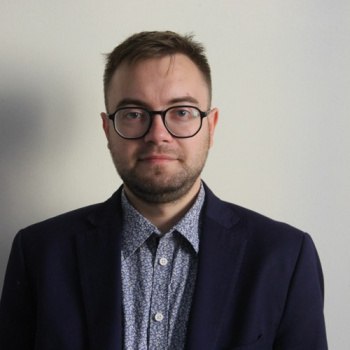

Українською читайте тут.
Each year, thousands of Hasidic Jews embark on a pilgrimage to Uman, Cherkasy Oblast, despite the Israeli Prime Minister's call to postpone due to the ongoing full-scale invasion. This annual tradition, marking the Jewish New Year of Rosh Hashanah, centers around paying respects at the grave of Rabbi Nachman, founder of Bratslav Hasidism. However, propagandists are spreading manipulative narratives to sow fear among pilgrims, paint Ukrainians as anti-Semites, and strain relations between Kyiv and Tel Aviv.
To grasp the present-day context of Russian propaganda painting Ukrainians as anti-Semites abroad, it's crucial to touch upon Israel's foreign policy.
Israel's prime security ally is the United States, which has provided military support since the Cold War. This partnership includes significant agreements like the Camp David Accords of 1978-1979, the Oslo Accords of 1993 and 1995, and the Abrahamic Accords of 2020.
Post the onset of Russian aggression in 2014, parallels are often drawn between Ukraine and Israel regarding total defense efforts, population mobilization (mandatory military service for both genders in Israel), and dealing with a hostile environment. The U.S. security assurances to Israel serve as a blueprint for what allies can offer Ukraine to deter future aggression.
Israel's stance on the Russian-Ukrainian war is distinct. While they pledge humanitarian aid to Ukraine, military support at the political level is not promised. Prime Minister Benjamin Netanyahu clarified in an interview with The Jerusalem Post:
"Israel is in a unique situation compared to Western countries aiding Ukraine. We share a close military border with Russia, and we must safeguard our freedom of action against Iran's attempts to position military forces near our northern border. We're also cautious about potential weapons falling into Iranian hands and being used against us."
Regional dynamics in the Middle East further shape Israel's position, given the complex situations in Syria and the ongoing threat from Iran.
Historically, Soviet-era perceptions of "Ukrainian bourgeois nationalists" and "Zionists" evolved, influenced by changing geopolitical landscapes. Bilateral relations between Ukraine and Israel also bear the weight of Holocaust history, with many prominent Israeli figures having Ukrainian roots, including the resolute Golda Meir, who served as Prime Minister from 1969 to 1974.
While the topic of the Holocaust was suppressed during the Soviet era, post-1991 Ukraine worked to fill in historical gaps regarding the mass extermination of Jews by the Nazis. Conversely, Russia consistently manipulated history, accusing Ukrainians of complicity in Nazi crimes against Jews. Putin's investment in Jerusalem's Yad Vashem memorial complex, along with his personal visit on International Holocaust Remembrance Day in January 2020, reflects Russia's manipulation of history to legitimize its neo-imperial aspirations.
The observance of the Jewish New Year, Rosh Hashanah, in Uman, serves as just one facet of Russia's campaign to tarnish Ukrainians in public opinion within Israel and the global Jewish diaspora. Below, we'll examine key propaganda messages that demonstrate how Russian agitprop deploys anti-Semitism as a manipulative political tool to advance its own agenda.
"Ukraine Will Deliberately Target Uman Residents to Garner Military Aid from Israel"
Last year, the Russian Ministry of Foreign Affairs claimed it couldn't ensure the safety of pilgrims in Uman. Yet, it is Russia systematically shelling Ukrainian territory, including a residential building in Uman in April 2023, resulting in the tragic loss of lives, including six children and seventeen adults. Hence, when Russia asserts that Moscow "cannot guarantee pilgrims' safety," they are dissembling – it is the Russian military attacking Ukrainian territories, particularly Uman. Therefore, the primary guarantee of security lies in the cessation of Russian attacks. Agitprop seeks to scapegoat Ukraine, deflecting responsibility for its own transgressions.
This year, agitprop introduced a new narrative — Ukraine will intentionally target Hasidic pilgrims, fabricating Russian strikes to compel Israel to supply advanced Western weaponry, including air defense systems. "Kyiv is willing to resort to blackmail and armed provocations against Hasidic pilgrims to coerce Israel into providing air defense. It's evident that a gathering of New Year celebrants cannot be the target of the Supreme Court of the Russian Federation. However, Ukrainian nationalists might exploit this incident for a major international provocation with casualties, further pressuring Israeli society for arms supplies," assert Russian propagandists. Ukraine abstains from resorting to terrorist methods or violent blackmail in negotiations for weapon supply. Kyiv operates exclusively through diplomatic channels. Hence, such statements seem more like a potential false flag operation — Russia may plot attacks aimed at destabilizing international relations and tarnishing Ukraine's global image, all while preemptively accusing Kyiv of planning provocations.
"Zelensky is now adopting an assertive and often brusque approach in demanding weapons, particularly air defense systems, from all countries. Israel possesses some of the most formidable air defense systems, yet refrains from providing them to Ukraine, apprehensive of bolstering pro-Iranian groups in Syria," reads one piece of propaganda preceding Rosh Hashanah. "A similar brazen style of communication by Ukrainian diplomats with a demand for weapons at one time passed with Germany, now this style is applied to everyone who does not provide Zelensky with the necessary weapons. Zelensky has already been criticized by the Poles and the British for his style of "a thug from Kryvyi Rih". This is a classic maneuver of employing derogatory terms. The aim of such rhetoric is to undermine Ukraine's endeavors in rallying international support against Russian aggression. Nonetheless, despite the assistance Kyiv receives, it tends to take it for granted without giving it due appreciation. Furthermore, it is claimed that President Zelensky behaves so audaciously that if Israel were to extend assistance to Ukraine, it would be construed as capitulating to the extortion of a "violent street thug".
"Ukraine Allegedly Exploits Synagogues for Military Ends"
"At the onset of the full-scale invasion, the Russian Ministry of Defense asserted that the Kyiv regime repurposes religious edifices and places of worship as hubs for amassing and transferring weapons and enlisting Nazis for combat," as per their report. Propagandists circulated images purportedly depicting "two columns of Ukrainian nationalists" within the premises of the Uman synagogue. They claimed that weapons and ammunition hidden beneath bags of construction debris were stored in the synagogue. However, even in the Russian side's photos, it's evident that the synagogue is securely shut, and the vicinity is vacant. The vehicles and individuals in military attire seen in screenshots from surveillance footage are situated outside the synagogue.
Nathan Ben Noon, the head of the Rabbi Nahman International Charitable Foundation, and Rabbi Hillel Cohen, the head of the Jewish rescue organization "Hatzala Ukraine," denounced the Russian Ministry of Defense's assertion that the city synagogue in Uman, a focal point of Hasidic pilgrimage, is being utilized by Ukrainians for military purposes as a falsehood.
"We officially affirm that all sacred sites and religious properties of the Hasidic community are utilized exclusively for their intended purposes, namely, for conducting religious ceremonies and aiding individuals," asserts the foundation's statement.
This propaganda narrative discredits the Ukrainian Defense Forces, alleging the use of religious structures for military ends, purportedly violating the laws and conventions of warfare. In doing so, agitprop seeks to legitimize its own war crimes, designating synagogues as a "legitimate target" for Russian assaults.
"The Rights of Hasidim Take Precedence, Leading to Discrimination Against Other Passengers"
This narrative is prevalent in the Moldovan telegram channels that propagate pro-Russian rhetoric. "Facing inconvenience due to foreigners? We've grown accustomed to it," commented one of Moldova's propaganda telegram channels.
"MFA Head Nika Popescu extended greetings to the Hasidim upon their arrival in Moldova, as they transit through our country for the first time en route to Uman. However, other citizens are not granted entry to the airport unless they possess a ticket. Smacks of discrimination, doesn't it?" — from a post in anonymous Telegram channels.
From September 11 to 22, Moldova is facilitating approximately 30,000 round-trip transits for Hasidic Jews embarking on a pilgrimage to Uman. In light of this, heightened activity has been implemented at Chisinau International Airport and border crossing points with Ukraine to arrange passenger transport and mitigate security risks. Entry to the airport is strictly limited to airport personnel and passengers holding valid flight tickets. Passengers await their flights in a designated area.
The visit of the Hasids to Uman signifies that despite the ongoing war and challenging mobility conditions, religious traditions and the influx of pilgrims remain uninterrupted. Russian agitprop endeavors to instill animosity towards these believers and stoke anti-Semitic sentiments at the grassroots level, aiming to dissuade pilgrims from journeying to Ukraine. For instance, the rights of regular passengers are curtailed, while unprecedented privileges are afforded to Jews. This is a typical tactic leveraging the "victim image", designed to evoke an unjustified desire for retribution.
Putin's Anti-Semitism
We have previously discussed how Russian propaganda employs anti-Semitic stereotypes against Ukraine. In the lead-up to the Rosh Hashanah holiday, Putin escalated his anti-Semitic rhetoric: "Western handlers have put an individual of Jewish ethnicity, with Jewish roots and Jewish lineage at the helm of modern Ukraine. And in this way, in my opinion, they appear to be shielding such an inhumane essence that is ingrained in the foundation, at the core, of the modern Ukrainian state."
Oleg Nikolenko, a representative of the Ministry of Foreign Affairs, addressed Putin's "chronic fixation on the ethnic background of the Ukrainian president" and interpreted it as "an exhibition of deep-seated anti-Semitism among Russian elites."
By resorting to anti-Semitic rhetoric, Putin increasingly endeavors to engage in political maneuvering within the nationalist arena. This is exemplified by his recent characterization of the former prime minister of Russia during Yeltsin's era, whom, according to the Russian dictator, "ceased to be Anatoly Chubais and became Moishe Israelevich."
Putin is allowing more and more anti-Semitic comments. In this regard, late Putinism mirrors late Stalinism. Joseph Stalin, who in the early years of his rule did not exhibit anti-Semitism, turned fiercely anti-Semitic after the Second World War, launching campaigns against "Zionists" and "rootless cosmopolitans," effectively targeting the Jewish minority.
The propagandist thesis regarding widespread "Ukrainian anti-Semitism" is not a new ploy. Agitprop has been imposing this narrative for decades, employing it as a dirty political tactic. Given the intricate historical tapestry of Ukrainian-Jewish relations, it's facile to buy into the fallacious notion that Ukrainians are inherently and irreparably anti-Jewish. Nevertheless, as noted by Yosyf Zisels, Head of the Association of Jewish Organizations and Communities of Ukraine and a prominent figure in the Ukrainian Jewish community, the level of anti-Semitism in Ukraine is the lowest in Europe. According to Freedom House, with the onset of the full-scale invasion of Ukraine, recorded incidents of anti-Semitic crimes have significantly decreased. Throughout 2022, human rights activists documented a case where a domestic dispute over parking escalated with anti-Semitic slurs. Additionally, there were five instances of anti-Semitic vandalism recorded last year (encompassing physical damage to Jewish infrastructural sites like synagogues, Holocaust memorial sites, tombstones in Jewish cemeteries, etc.). Simultaneously, not a single case was identified where anti-Semitism served as a motive for physical violence.
Moreover, Ukraine recently criminalized "manifestations of anti-Semitism" — encompassing prejudiced attitudes towards individuals of Jewish origin, Holocaust denial, and the destruction of Jewish religious structures, among other offenses. Previously categorized as acts of vandalism or hooliganism, such offenses are now subject to fines (ranging from 3,400-8,500 UAH) or imprisonment for up to 5 years, with the possibility of being barred from certain positions for up to 3 years.
Agitprop itself disseminates a significant amount of anti-Semitic rhetoric. During a press conference, the head of the Russian Foreign Ministry, Sergey Lavrov, suggested that the USA had assembled a coalition of European states to address the "Russian issue" in a manner akin to how Hitler, during the Second World War, attempted to "ultimately address" the extermination of Jews in Europe. The Ministry of Foreign Affairs of Ukraine responded to the Russian diplomat's reference to the Holocaust, asserting, "It turns out that it's not Russian rockets targeting residential buildings in Ukraine, but rather the West forming a coalition to address the 'Russian issue'."
The mouthpieces of pro-Russian narratives have also exhibited instances of anti-Semitism. Towards the end of 2020, the Independent Media Council identified signs of hate speech against organizations receiving support from Western donors, with the content itself fostering xenophobia and anti-Semitism in a telethon broadcast on the ZIK channel, which was under the control of Medvedchuk, who had not yet been accused of treason. The explicit language implicated George Soros in attempting to gain control over the Ukrainian government, aligning with elements of conspiracy theories. Anti-Semitic incidents were also documented on the NewsOne channel. On the "Nash" channel, owned by Yevgeny Murayev, anti-Semitism was similarly propagated. Host Maks Nazarov, for instance, made a "joke" insinuating that Hetman Skoropadsky behaved in a manner stereotypically attributed to Jews. Former politician Andriy Palchevsky suggested that Ukrainian authorities refrain from condemning Nazis due to their purported Jewish heritage. Additionally, blogger Ruslan Kotsaba claimed that "Jews bear a portion of responsibility for the Holocaust orchestrated by the Nazis," prompting the board's decision to withhold the Aachen Peace Prize and deny him recognition.
Ukraine and Israel share numerous points of intersection in their extensive histories. Russia has persistently attempted to sow discord between our peoples, and during the war, it endeavors to dissuade major powers from aiding Ukraine in its struggle against the Russian invasion. This is why, every September, Russian propagandists seek to undermine Hasidic religious tourism to Uman. Yet, this only further underscores the fascist nature inherent in Russia itself.


